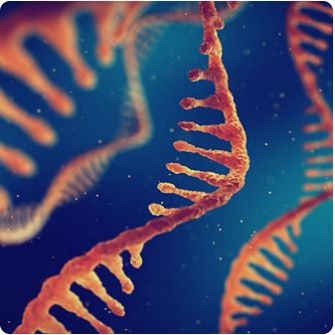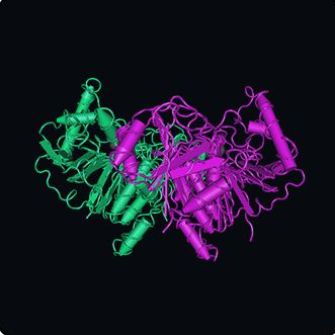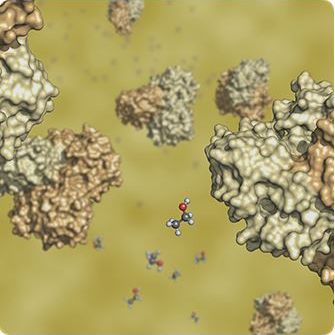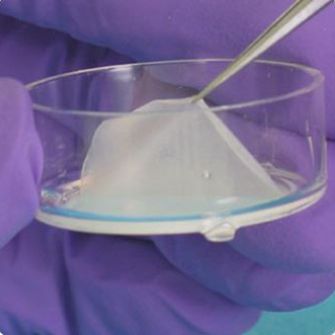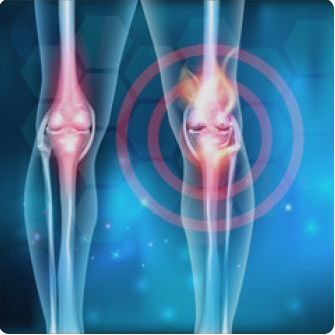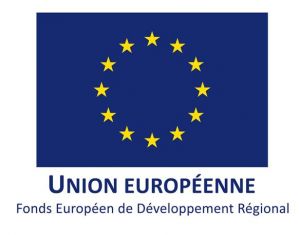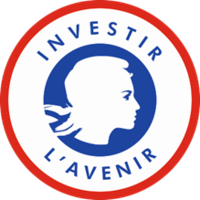In addition to its staff, the unit welcomes 2 persons in emeritus.
Research unit 7365 IMoPA
Molecular and Cellular Engineering and Pathophysiology
Biopôle, Campus Brabois-Santé
9 Avenue de la Forêt de Haye, BP 20199
54505 VANDOEUVRE-LES-NANCY
FRANCE
Bruno CHARPENTIER
bruno.charpentier [at] univ-lorraine.fr
Florence CHARTIER
florence.chartier [at] univ-lorraine.fr
UMR 7365 IMoPA (Molecular, Cellular and Physiopathological Engineering) is under the joint supervision of the University of Lorraine (UL) and the CNRS. It is affiliated with both the CNRS Engineering Institute and the CNRS Biology Institute. The scientific activities of its researchers are evaluated by CoNRS sections 28, 20, 16, and 26. The Unit also includes three INSERM researchers.
The activities of the researchers and lecturers fall within five disciplinary panels of the Life and Environmental Sciences: SVE 3 Living Molecules, Integrative Biology (from genes to genomes to systems), Cell and Developmental Biology for Animal Science; SVE 7 Prevention, Diagnosis and Treatment of Human Diseases; SVE 4 Immunity, Infection, and Immunotherapy; SVE 5 Neuroscience and Nervous System Disorders; and SVE 6 Human Physiology and Pathophysiology, Ageing.
Within the Biopôle building, UMR IMoPA serves as a center of multiple areas of expertise, benefiting other laboratories in UL's Biology Medicine Health (BMS) scientific cluster. For the 2024-28 contract period, the IMoPA laboratory is structured into eight teams.
Supervising body(ies)
Key numbers of the unit
- 55 Lecturers and professor
- 14 Staff scientists
- 48 Qualified research supervisors (HDR)
- 29 Technical and administrative staff
- 38 / 8 phD students /
Postdocs students - 452 Publications ACL
2019-2024
Research topics / Know-how
ARN-RNP (RNA/P)
Team RNA/P studies the machinery which assembles ribonucleoprotein particles, notably through structure-function approaches, as well as the mechanisms of RNA processing. The team also investigates the functions of small and long non-coding RNAs and RNA-protein complexes, under both normal and pathological conditions. In these situations, RNAs are evaluated both for their contribution to physiopathology and as potential biomarkers.
Contact(s) :
Bruno CHARPENTIERbruno.charpentier [at] univ-lorraine.frXavier MANIVALxavier.manival [at] univ-lorraine.frMolecular, cellular and translational glycobiology (GlycoBio)
The GlycoBio team's research is based on multi-scale approaches, from the molecule to the patient, providing fundamental knowledge in glycobiology to propose therapeutic and diagnostic tools for pathologies involving disturbances in the biosynthesis of glycosaminoglycans (GAGs) and/or collagens. The team explores the biosynthesis machinery and pathophysiological mechanisms of GAG and collagen assembly, the main macromolecules of the cellular micro- and macro-environment. Studies focus on the structure, functions, and regulation of the enzymes responsible for the biosynthesis and maturation of GAGs (glycosyltransferases, sulfotransferases) and collagen (lysyl oxidase, prolyl hydroxylases), as well as the atypical molecular functions of proteoglycans, particularly in nuclear organization.
Contact(s) :
Mohamed OUZZINEmohamed.ouzzine [at] univ-lorraine.frSylvie FOURNEL-GIGLEUXsylvie.fournel-gigleux [at] univ-lorraine.frBARRETO Guillermoguillermo.barreto [at] univ-lorraine.frGULBERTI Sandrinesandrine.gulberti [at] univ-lorraine.frMulti-scale redox enzymology and epitranscriptomics (EpiRedOx)
The main objective of the EpiRedOx team is to establish detailed structure-function relationships for enzymes and related proteins of biomedical and/or biotechnological interest, with the aim not only of understanding fundamental biological processes but also of manipulating enzymatic activity for specific purposes. The research draws on a range of skills in molecular enzymology and biophysical techniques, including protein and genetic engineering, classical and rapid enzyme kinetics (stopped-flow, quench-flow), fluorescence and circular dichroism spectroscopies, mass spectrometry, and techniques for characterizing biomolecular interactions in vitro (ITC and SPR) and in cellulo (BiFC).
Contact(s) :
Sandrine BOSCHI-MULLERsandrine.boschi [at] univ-lorraine.frSophie RAHUEL-CLERMONTsophie.rahuel [at] univ-lorraine.fr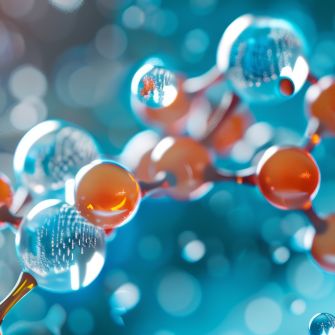
Biologie structurale et synthétique, enzymologie et applications des mégaenzymes (S2BEAM)
The main objective of the S2BEAM team is to establish detailed structure-function relationships for enzymes and related proteins of biomedical and/or biotechnological interest, with the aim not only of understanding fundamental biological processes but also of manipulating enzymatic activity for specific purposes. Research is carried out in the field of megaenzymes (polyketide synthases (PKS), non-ribosomal peptide synthetases, and their hybrids) involved in the biosynthesis of specialized metabolites in bacteria and fungi. The research draws on a range of skills in molecular enzymology, biophysical and structural biology techniques, and synthetic biology.
Contact(s) :
Kira WEISSMANkira.weissman [at] univ-lorraine.frArnaud GRUEZarnaud.gruez [at] univ-lorraine.frRegenerative Medicine, Pharmacology & Characterization of Osteoarticular Tissues (ReMPaCOAT)
The ReMPaCOAT team's project is based on a cross-disciplinary strategy, bridging fundamental and clinical research, to adopt a multi-axial approach to the treatment of focal or diffuse osteoarticular lesions. This approach ranges from tissue engineering to the development of new therapeutics, their pharmacological study, and the creation of innovative tools for better tissue characterization.
Contact(s) :
Astrid PINZANOastrid.pinzano [at] univ-lorraine.frLaurent GROSSINlaurent.grossin [at] univ-lorraine.frCell engineering and Immunomodulation of Inflammatory and Neoplastic Disorders (CImIND)
The CImIND team's activities focus on the study of cellular immunomodulation in inflammatory and neoplastic contexts. Research centers on rheumatoid arthritis, psoriasis, systemic lupus erythematosus, and the effects of metabolic modulation of innate immune cells on the immune response. In the context of neoplasia, the team investigates the immunomodulatory mechanisms of cells in the medullary and leukemic microenvironment, as well as the molecular characterization of the T lymphocyte response in patients with hematological malignancies, aiming to understand the mechanisms by which tumor cells escape immunosurveillance. Additionally, the team is developing innovative cellular immunotherapy strategies for dysimmune and neoplastic diseases. These include using mesenchymal stem cells for immune regulation in sepsis and graft-versus-host disease following hematopoietic stem cell allografts, virus-specific lymphocytes for treating viral infections in immunocompromised patients, myeloid suppressor cells to induce tolerance in hematopoietic stem cell transplants, and iNKT and T cells engineered to express a chimeric antigen receptor (CAR) as anti-tumor immunotherapies in hematological malignancies and solid tumors.
Contact(s) :
Jean-Yves JOUZEAUjean-yves.jouzeau [at] univ-lorraine.frDavid MOULINdavid.moulin [at] univ-lorraine.frMarie-Therese RUBIOmarie-therese.rubio [at] univ-lorraine.fr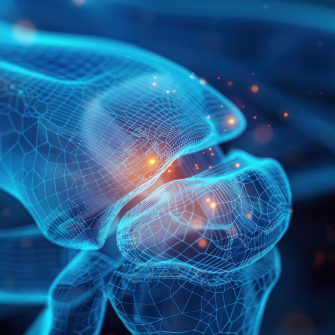
Pathophysiology and therapeutics of cartilage tissue (CARPATH)
The CARPATH team's activities focus on studying the players and mechanisms behind cartilage damage, aiming to gain a better physiopathological understanding of a wide range of pathologies, from rare diseases with a genetic predisposition, such as skeletal dysplasia, to prevalent chronic and disabling joint diseases like osteoarthritis. The goal is to identify targets and potential therapeutic solutions.
The team's project is based around three areas, with objectives to study the respective contributions of anti-mineralizing factors (inorganic pyrophosphate or
PPi, Matrix Gla Protein or MGP), metabolic factors (hyperglycemia, hyperlipidemia), and lipid nanoparticles to phenotypic changes in chondrocytes in different cartilage tissues and under various pathophysiological conditions, in order to contribute to the development of curative treatments for cartilage pathologies.
Contact(s) :
Hervé KEMPFherve.kempf [at] inserm.fr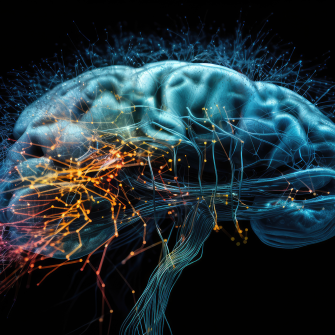
Clinical Research in Neuroscience (ERCN)
The ERCN team consists primarily of clinician-researchers (7 out of 10 members) and is closely integrated with the clinical activities of the neurology department at Nancy CHRU. Its objective is to understand the healthy and pathological brain mechanisms involved in human cognition (including visual perception, memory, learning, emotions, and attention). This understanding is primarily based on multi-modal and multi-scale studies involving clinical populations, particularly drug-resistant epileptic patients.
Specific studies within the team focus on the visual recognition of faces and letters/words (reading), which are predominantly associated with the right and left cerebral hemispheres, respectively. The team also investigates how these recognition processes are modulated by attention, using electrophysiological, metabolic, and behavioral approaches. Cognitive assessment extends to patients during pre- and post-surgical stages of neuropsychology, utilizing electrophysiological biomarkers. Additionally, the team studies the genesis of epileptic seizures in children and psychogenic seizures.
The team also investigates other neurological disorders that impact recognition functions, such as Alzheimer's disease.
Contact(s) :
Staff

Florence CHARTIER Administrative Manager CNRS
Bruno CHARPENTIER Director UL
Marie-Therese RUBIO Co Director UL
phD students
- 5A these 2025TAN DAI TRANEfficacité et mécanismes d'action des CAR-iNKT versus CAR-T dans le glioblastomeInvestigation of the efficacy and mechanisms of anti-GD2 CAR.iNKT in comparison with CAR.T for the treatment of glioblastoma (GBM)Directeur de thèse :Marie-Thérèse RUBIOCo-directeur de thèse :Cécile POCHON
- 5A these 2024THOMAS MOULINETRôle des cellules myéloïdes suppressives (MDSCs) au cours du lupus érythémateux systémique (LES)Involvement of myeloid derived suppressor cells (MDSCs) in systemic lupus erythematosus (SLE)Directeur de thèse :Marie-Thérèse RUBIOCo-directeur de thèse :Maud D'AVENI - PINEY
- 4A these 2025JADE WENZELMécanismes moléculaires d'inactivation de virus entériques en conditions oxydantesMolecular mechanisms of enteric viruses inactivation under oxidative conditionsDirecteur de thèse :François TALFOURNIERCo-directeur de thèse :Hortense MAZON
- 4A these 2025Théa PIGNOTLUE - Caractérisation des cellules stromales mésenchymateuses provenant de cordon ombilical ou de lot de cordons ombilicaux pour des applications de thérapie cellulaireLUE -Mesenchymal stromal cells characterization from Single batches and Pooled Umbilical Cord Batches for cell therapy applicationsDirecteur de thèse :Céline HUSELSTEINCo-directeur de thèse :Caroline LAROYE
- 4A these 2024JUSTINE DAVIDMise en évidence de biomarqueurs pour le diagnostic et le pronostic de la maladie d'Alzheimer par la stimulation périodique rapide en EEG.Identification of biomarkers for the diagnosis and prognosis of Alzheimer's disease by rapid periodic EEG stimulationDirecteur de thèse :Bruno ROSSIONCo-directeur de thèse :Laurent KOESSLER
- 4A these 2024MIREILLE TABIKHÉtude instrumentale et électrophysiologique de l'impact dela stimulation électrique transcrânienne sur le cerveau humainInstrumental and Electrophysiological studies of transcranial electrical stimulations impact on the human brainDirecteur de thèse :Laurent KOESSLER
- 4A these 2024MARION MARCHIVEBiomarqueurs électrophysiologiques de latéralisation hémisphérique et de la capacité dulangage par stimulations périodiques rapidesElectrophysiological biomarkers of hemispheric lateralisation and language ability with fast periodic stimulationDirecteur de thèse :Louis MAILLARDCo-directeur de thèse :Aliette LOCHYCo-tutelle :Université du Luxembourg
LUXEMBOURG - 4A these 2024ARNAUD BUZONApproche enzymatique et structurales pour la synthèse des macrolactamesEnzymatic and structural approach for the synthesis of macrolactamsDirecteur de thèse :Kira WEISSMAN - SOURMAILCo-directeur de thèse :Lynn GREGORY PAURON
- 3A these 2025ALEXANDRA GUELTONSénescence des cellules stromales mésenchymateuses et Transfert de Mitochondries vers les cellules immunitaires : relation avec la réponse à la transplantation allogénique de cellules souches hématopoïétiques chez les patients atteints d'hémopathies malignesMesenchymal stromal cell senescence and Mitochondrial Transfer to immune cells: relationship with the response to allogeneic hematopoietic stem cell transplantation in patients with hematologic malignanciesDirecteur de thèse :Natalia DE ISLACo-directeur de thèse :Simona PAGLIUCA
- 3A these 2025ROMAIN HUGONRôle de la protéine matricielle Gla (MGP) dans les mécanismes physiopathologiques de calcification de la trachée : apport du modèle murin du syndrome de KeutelRole of matrix protein Gla (MGP) in the pathophysiological mechanisms of tracheal calcification: contribution of the mouse experimental model of Keutel syndromeDirecteur de thèse :Arnaud BIANCHICo-directeur de thèse :Hervé KEMPF
- 3A these 2025Cindy LAMORLETTEEfficacité anti-tumorale d'une stratégie CAR-T cells anti-GD2 optimisée dans l'environnement immunosuppresseur du glioblastomeAntitumor efficacy of IL15-GD2 CAR-T cells in the immunosuppressive microenvironment of glioblastomaDirecteur de thèse :Danièle BENSOUSSANCo-directeur de thèse :Gianpietro DOTTI
- 3A these 2025SVENJA BERLAGEAmélioration du potentiel biosynthétique d'un domaine malonyl-acétyl-transférase (MAT) d'une acide gras synthaseExpanding the biosynthetic potential of a fatty acid synthase malonyl-acetyl transferase (MAT) domainDirecteur de thèse :Kira WEISSMAN - SOURMAILCo-directeur de thèse :Benjamin CHAGOT
- 3A these 2025Julien LHUILLIEREtude du long ARN non-codant ANRIL impliqué dans la régulation génique chez l'hommeStudy of the long non-coding RNA ANRIL involved in gene regulation in humanDirecteur de thèse :Sylvain MAENNERCo-directeur de thèse :Isabelle BEHM-ANSMANT
- 3A these 2025EMMANUELLE HOLOGNECaractérisation du devenir cognitif des patients présentant une épilepsie de début tardif d'étiologie indéterminée : cohorte ULOtECharacterization of the evolution of the cognitive profile of patients with late onset epilepsy of unknown etiology : ULOtE cohortDirecteur de thèse :Louise TYVAERTCo-directeur de thèse :Solène MOULIN
- 3A these 2025RIDVAN KAYRICIBases neurales de l'attention visuelle et sa modulation de la perception visuelle.Neural basis of visual attention and its modulation of visual perception.Directeur de thèse :Laurent KOESSLERCo-directeur de thèse :Tal SEIDEL MALKINSON
- 3A these 2025SEVERINE BRELAUDÉtudes des processus cognitifs sous-jacents au vagabondage de l'esprit et de leurs impacts sur la tâche de conduite. Proposition d'un outil de détection du mindwandering afin d'améliorer la sécurité routière.Study of the cognitive processes underlying mindwandering and their impact on the driving task. Proposal of a mindwandering detection tool to improve road safety.Directeur de thèse :Tal SEIDEL MALKINSONCo-directeur de thèse :Thomas ANDRILLON
- 3A these 2025LORI PETROCELLIprévalence du trouble dissociatif de l'identité dans des groupes à risque en ambulatoire rapportant des traumas dans l'enfanceprevalence of dissociative identity disorder in outpoint at risk groups reporting childhood traumaDirecteur de thèse :Coraline HINGRAY
- 3A these 2024LUCAS SARDINIEtude de la biogenèse de la Particule de Reconnaissance du Signal SRPStudy of the biogenesis of the Signal Recognition Particle SRPDirecteur de thèse :Séverine MASSENET
- 3A these 2024Rim NASRALLAHIdentification et caractérisation de nouvelles molécules bio-sourcées affectant les fonctions du récepteur LSRIdentification and characterization of new bio-sourced molecules affecting LSR activitiesDirecteur de thèse :Sandrine BOSCHI-MULLERCo-directeur de thèse :Catherine CORBIER
- 3A these 2024JORDAN BROUARDDéveloppement de CAR-iNKT anti-CD123 et anti-IL1Rap pour le traitement de la leucémie aigue myéloblastique chez l'homme: mécanismes d'action et voies d'optimisationDevelopment of anti-CD123 and anti-IL1Rap CAR-iNKT for the treatment of acute myeloid leukemia in humans : mechanisms of action and ways of optimizationDirecteur de thèse :Marie-Thérèse RUBIOCo-directeur de thèse :David MOULIN
- 3A these 2024Magali TIRADOLUE- Contributions à une ingénierie efficace des PKSLUE- Advancing PKS EngineeringDirecteur de thèse :Christophe JACOBCo-directeur de thèse :Bertrand AIGLE
- 2A these 2025EYRIAN AUBIN-BEALEÉtude et optimisation de la diffusion des antibiotiques dans les tissus ostéo-articulaires.Study and optimization of antibiotic diffusion in osteoarticular tissues.Directeur de thèse :Pierre GILLETCo-directeur de thèse :Julien SCALA BERTOLA
- 2A these 2025MARIE ASLUE - Cibler R2TP et R2TP-like pour identifier des médicaments candidatsLUE - Target R2TP and R2TP-like to identify drug candidatesDirecteur de thèse :Xavier MANIVALCo-directeur de thèse :Tiago BANDEIRAS
- 2A these 2025CAROLINE MORIZOTIdentification des altérations du métabolisme du tryptophane dans la spondylarthriteIdentification of Alterations in tryptophan (Trp) metabolism in spondyloarthritisDirecteur de thèse :David MOULIN
- 2A these 2025PAUL DECKEREvaluation de l'implication des auto-anticorps anti-Ro52 et des cellules myéloïdes (monocytes, cellules dendritiques) au cours du lupus systémiqueImplication of anti-Ro52 autoantibodies and myeloid cells (monocytes, dendritic cells) in systemic lupusDirecteur de thèse :Marcelo DE CARVALHO
- 2A these 2025SOLINE LOUISCD Fonctions moléculaires des gènes SNORD116 impliqués dans le syndrome de Prader WilliCD Molecular functions of the SNORD116 genes involved in Prader Willi syndromeDirecteur de thèse :Stéphane LABIALLECo-directeur de thèse :Bruno CHARPENTIER
- 2A these 2025MATEO SARICACD Homéostasie redox d'une protéine multifonctionnelle déterminante dans la maladie de ParkinsonCD Redox homeostasis of a multifunctional protein linked to Parkinson diseaseDirecteur de thèse :Sophie RAHUEL-CLERMONTCo-directeur de thèse :Benjamin SELLES
- 2A these 2025JESSICA BETTINGERCD Etude du microenvironnement pro-inflammatoire de la moelle osseuse pour la compréhension de l'évolution des syndromes myélodysplasiques (SMD)CD The Pro-inflammatory Microenvironment in Myelodysplastic syndromesDirecteur de thèse :Maud D'AVENI - PINEYCo-directeur de thèse :David MOULIN
- 2A these 2025ALEXANDROS VENETISFace identity recognition in the Anterior Fusiform Gyrus: A singleneuron approachFace identity recognition in theAnterior Fusiform Gyrus: A singleneuron approachDirecteur de thèse :Bruno ROSSIONCo-directeur de thèse :Jacques JONAS
- 1A these 2025ALEXIS TARRADAExploration des symptômes psychotiques et de leurs biomarqueurs électrocliniques dans les épilepsies focalesInvestigation of psychotic symptoms and their electro-clinical biomarkers in focal epilepsiesDirecteur de thèse :Coraline HINGRAYCo-directeur de thèse :Cédric BAUMANN
- 1A these 2025PAUL HENTONCaractérisation des interactions entre la Vitamine K et ses partenaires enzymatiques VKORC1, GGCX et redox par modélisation moléculaire et méthodes enzymatiques et biophysiquesCharacterisation of the interactions between Vitamin K and its enzymatic partners VKORC1 and GGCX, and redox partners using molecular modelling, enzymatic and biophysical methodologiesDirecteur de thèse :Sophie RAHUEL-CLERMONTCo-directeur de thèse :Nolan CHATRON
- 1A these 2025JULIEN MAZOUNICD Caractérisation fonctionnelle des Glycosaminoglycanes au sein de la machinerie de modification post-traductionnelle du collagèneCD Functional characterization of glycosaminoglycans within the collagen post-translational modification machineryDirecteur de thèse :Jean-Baptiste VINCOURT
- 1A these 2025LORIS GERARDCD IImpact du métabolisme des cellules CAR-iNKT sur leurs propriétés antitumoralesCD Impact of CAR-iNKT cell metabolism on their antitumor propertiesDirecteur de thèse :Marie-Thérèse RUBIOCo-directeur de thèse :David MOULIN
- 1A these 2025NOAH DONZÉCD Etude du long ARN non-codant ANRIL impliqué dans la modulation de la topologie nucléaire chez l'HommeCD Study of the long non-coding RNA ANRIL involved in the modulation of nuclear topology in humansDirecteur de thèse :Sylvain MAENNERCo-directeur de thèse :Athanase VISVIKIS
- 1A these 2025LAURA BOULANGÉDéveloppement de cellules myéloïdes suppressives +/- modifiées génétiquement comme nouveau Médicament de Thérapie InnovanteDevelopment of genetically modified and/or unmodified myeloid-derived suppressor cells as a new Advanced Therapy Medicinal ProductDirecteur de thèse :Maud D'AVENI - PINEY
- 1A these 2025MAROUA MELKIEtude de la cognition dans l'épilepsie temporale : reconnaissance des visages humains par des mesures comportementales et électrophysiologiquesStudy of Cognition in Temporal Lobe Epilepsy: Human Face Recognition through Behavioral and Electrophysiological MeasuresDirecteur de thèse :Bruno ROSSIONCo-directeur de thèse :Jacques JONAS
- 1A these 2025SHIXUAN WANGCompétition neuronale entre représentations visuelles de haut niveauNeural competition between high-level visual representationsDirecteur de thèse :Bruno ROSSIONCo-directeur de thèse :Jacques JONAS
- 1A these 2025LUCAS CHARPYApproches inspirées de l'évolution et de la biochimie pour l'ingénierie des polykétide synthases trans-ATEvolutionary and biochemical approaches to engineering trans-AT polyketide synthases (PKSEng)Directeur de thèse :Kira WEISSMAN - SOURMAILCo-directeur de thèse :Arnaud GRUEZ
- 1A these 2025GAELLE LECUYOTCD Les vésicules hybrides comme nouvelles approches thérapeutiques pour régénérer le cartilageCD Hybrid vesicles as new therapeutics to regenerate cartilageDirecteur de thèse :Emilie VELOTCo-directeur de thèse :Elmira ARAB TEHRANY
- 1A these 2025ELISA VICQCD Etude du rôle du facteur d'assemblage ZNHIT6 et du complexe protéine chaperon R2TP dans la biogenèse des snoRNP C/DCD Study of the Role of the Assembly Factor ZNHIT6 and the R2TP Chaperone Complex in the Biogenesis of box C/D snoRNPsDirecteur de thèse :Xavier MANIVALCo-directeur de thèse :Benoît BRAGANTINI
Pas de soutenance pour le moment
- THOMAS MOULINETRôle des cellules myéloïdes suppressives (MDSCs) au cours du lupus érythémateux systémique (LES)Involvement of myeloid derived suppressor cells (MDSCs) in systemic lupus erythematosus (SLE)Directeur de thèse :Marie-Thérèse RUBIOCo-directeur de thèse :Maud D'AVENI - PINEY
- LUCAS SARDINIEtude de la biogenèse de la Particule de Reconnaissance du Signal SRPStudy of the biogenesis of the Signal Recognition Particle SRPDirecteur de thèse :Séverine MASSENET
- RIM NASRALLAHLes mécanismes moléculaires impliqués dans la régulation par le LSR de<br />
l'homéostasie lipidique : nouvelle cible thérapeutique ?Molecular mechanisms involved in LSR-mediated regulation of lipid homeostasis: a new therapeutic target?Directeur de thèse :Sandrine BOSCHI-MULLERCo-directeur de thèse :Catherine CORBIER - MARION MARCHIVEMarqueurs électrophysiologiques de latéralisation hémisphérique et de la capacité du langage par stimulation visuelle périodique rapideElectrophysiological markers of hemispheric lateralisation and language ability with fast periodic visual stimulationDirecteur de thèse :Louis MAILLARDCo-directeur de thèse :Aliette LOCHYCo-tutelle :Université du Luxembourg
LUXEMBOURG - MAGALI TIRADOContributions à une ingénierie efficace des polycétide synthasesAdvancing polyketide synthase engineeringDirecteur de thèse :Christophe JACOBCo-directeur de thèse :Bertrand AIGLE
- JORDAN BROUARDExpansion des cellules iNKT humaines et développement de CAR-iNKT anti-CD123 dans la leucémie aiguë myéloblastiqueExpansion of human iNKT cells and development of anti-CD123 CAR-iNKT for the treatment of acute myeloid leukemiaDirecteur de thèse :Marie-Thérèse RUBIOCo-directeur de thèse :David MOULIN
- JUSTINE DAVIDMarqueurs électrophysiologiques de la cognition dans la maladie d'Alzheimer par stimulation visuelle périodique rapideElectrophysiological markers of cognition in Alzheimer's Disease using Fast Periodic Visual StimulationDirecteur de thèse :Bruno ROSSIONCo-directeur de thèse :Laurent KOESSLER
- MIREILLE TABIKHÉtude instrumentale et électrophysiologique de l'impact de la stimulation électrique transcrânienne sur la reconnaissance visuelle chez l'être humainInstrumental and Electrophysiological Studies of Transcranial Electrical Stimulations Impact on Visual Recognition in HumansDirecteur de thèse :Laurent KOESSLER
- GURUPRASADH SWAMINATHANL'erlotinib induit des réarrangements du génome en 3D dans les cellules cancéreuses du poumon activant les gènes suppresseurs de tumeurs par l'intermédiaire d'épromoteurs liés à FOXA2Erlotinib induces 3D genome rearrangements in lung cancer cells activating tumor suppressor genes through FOXA2-bound EpromotersDirecteur de thèse :Guillermo BARRETOCo-directeur de thèse :Sandrine GULBERTI
- GHITA SEKKATCaractérisation de la zone de transition cartilage / os et développement de bio-encres adaptées à la reproduction de cette zone d'ancrage sous-chondrale dans le traitement des lésions ostéochondrales par ingénierie tissulaire.Characterization of the cartilage/bone transition zone and development of bio-inks adapted to reproduce, by tissue engineering approach, the sub-chondral anchoring zone dedicated to treating osteochondral defects.Directeur de thèse :Laurent GALOISCo-directeur de thèse :Laurent GROSSIN
- ADELE DHUYSERCompatibilité donneur/receveur en dehors du polymorphisme HLA au décours de l'allogreffe de cellules hématopoïétiques : les gènes KIR et les antigènes mineurs d'histocompatibilitéDonor/recipient compatibility behind HLA polymorphism in allogeneic hematopoietic cell transplantation: KIR genes and minor histocompatibility antigensDirecteur de thèse :Laurent MESNARDCo-directeur de thèse :Alice AARNINK
- ROMAIN PEROUFÉtude du transfert de mitochondries des cellules stromales mésenchymateuses (CSM) vers les lymphocytes T : influence de la sénescence des CSM dans le contexte de la leucémie aigüe myéloïdeStudy of Mitochondrial Transfer from Mesenchymal Stromal Cells (MSCs) to T Lymphocytes: Influence of MSC Senescence in the Context of Acute Myeloid LeukemiaDirecteur de thèse :Natalia DE ISLA
- MERIEM EL OUAFYImpact du microenvironnement médullaire leucémique sur la sénescence des cellules souches mésenchymateuses (CSM) de la moelle osseuse et conséquences sur les fonctions immunorégulatrices des CSM, la survenue de GVH et le risque de rechute post-greffeImpact of leukemic marrow environment on the senescence of bone marrow mesenchymal stem/stromal cells (CSM) and consequences on CSM immunoregulatory functions, GVHD occurrence and the risks of relapse after-transplantationDirecteur de thèse :Natalia DE ISLACo-directeur de thèse :Marie-Thérèse RUBIO
- JULIE MATHIEURégulation de la modification post-traductionnelle des Peroxyrédoxines par sulfinylation : aspects catalytiques et mécanistiques.Regulation of the post-translational modification of peroxiredroxins by sulfinylation: catalytic and mechanistic aspects.Directeur de thèse :Sophie RAHUEL-CLERMONTCo-directeur de thèse :Benjamin SELLES
- ALLAN BERTRANDRôle des cellules myéloïdes suppressives (MDSCs) dans les syndromes myélodysplasiques / Leucémies aiguës myéloïdes dans le contexte de l'allogreffe de cellules souches hématopoïétiquesRole of Myeloid-Derived Suppressive Cells (MDSCs) in Myelodysplastic Syndromes / Acute Myeloid Leukemias in the Context of Hematopoietic Stem Cell TransplantationDirecteur de thèse :Marie-Thérèse RUBIOCo-directeur de thèse :Maud D'AVENI - PINEY
- ROMAIN FRANCOISMonooxygénations catalysées par des polycétide synthases modulaires : caractérisation structurale et fonctionnelleMonooxygenations catalyzed by modular polyketide synthases : structure-function relationshipsDirecteur de thèse :Kira WEISSMAN - SOURMAILCo-directeur de thèse :Arnaud GRUEZ
- OCEANE MESSAOUDIMédecine régénératrice des lésions du cartilage : Production de substituts cartilagineux stratifiés par bio-impression 3DRegenerative medicine of cartilage lesions: Production of cartilaginous stratified substitutes using 3D bioprintingDirecteur de thèse :Astrid PINZANO-WATRINCo-directeur de thèse :Christel HENRIONNET
- MALAK SBEITYInvestigation des mécanismes moléculaires impliqués dans les anomalies du développement osteoarticulaire induites par la déficience en TMEM 165Investigation of molecular mechanisms involved in skeletal defects induced by deficiency in TMEM 165Directeur de thèse :Mohamed OUZZINE
- AMANI ISSADécrypter le mécanisme de biogenèse de la Particule de Reconnaissance du Signal (SRP) et ses liens avec la biogenèse du ribosome et la structure du nucléoleDeciphering the biogenesis of the Signal Recognition Particle (SRP), and its connection with ribosome biogenesis and nucleolar structureDirecteur de thèse :Séverine MASSENETCo-directeur de thèse :DENIS LAFONTAINE
- AYMERIC SANCHEZIdentification et caractérisation des éléments fonctionnels associés à l’activité de régulateur génique du lncRNA pathogénique ANRILIdentification and characterization of the functional elements associated with the gene regulation activities of the pathogenic lncRNA ANRILDirecteur de thèse :Iouri MOTORINECo-directeur de thèse :Sylvain MAENNER
- ALEXANDRE MARANORôle de la protéine matricielle Gla (MGP) dans le développement du cartilage sain et pathologiqueRole of Matrix Gla Protein (MGP) in cartilage development and diseaseDirecteur de thèse :Arnaud BIANCHICo-directeur de thèse :Hervé KEMPF
- ANNE-LISE CLAUDELLes thioltransférases à domaine Rhodanèse: du catabolisme mitochondrial d’H2S à la biocatalyseRhodanese-fold sulfurtransferases: from mitochondrial H2S catalbolism to biocatalysisDirecteur de thèse :Sandrine BOSCHI-MULLERCo-directeur de thèse :François TALFOURNIER
- CECILE POCHONImmunorégulation de la maladie du Greffon contre l’Hôte (GVH) par les cellules souches mésenchymateuses de la gelée de Wharton : Etudes in vitro et in vivo sur un modèle de GVH chez la souris NSGImpact of Wharton Jelly Mesenchymal Stem Cells on Graft versus Host DiseaseDirecteur de thèse :Marie-Thérèse RUBIOCo-directeur de thèse :Maud D'AVENI - PINEY
- SANA DERMOUCHEDécryptage des mécanismes moléculaires d’assemblage de complexes macromoléculaires ARN/protéine : la snoRNP C/D comme modèle de travailDeciphering the molecular mechanisms of the assembly of macromolecular complexes : snoRNP as a working modelDirecteur de thèse :Xavier MANIVALCo-directeur de thèse :Stéphane LABIALLE
- HELENE BARTHELInfluence de paramètres physiques de nanotubes de carbone multi-parois sur leurs propriétés toxicologiques dans un modèle de cellules épithéliales bronchiques. Rapprochement avec les effets pulmonaires chez le ratInfluence of physical parameters of multi-wall carbon nanotubes on their toxicological properties in a model of bronchial epithelial cells. Association with lung effects in ratsDirecteur de thèse :Athanase VISVIKISCo-directeur de thèse :Carole SEIDEL
- ADRIEN FAYONNouvelles approches dans la conception d’un substitut vasculaire de petit diamètre d’origine foetale et premières évaluations de pontage artériel chez le gros animalNew approaches to the design of a small-diameter vascular graft from fetal origin and preliminary evaluations in arterial bypass surgery in large animalsDirecteur de thèse :Patrick MENUCo-directeur de thèse :Reine EL OMAR
- CHARLOTTE VOISINEtude du potentiel immunomodulateur et/ou migratoire des cellules souches/stromales mésenchymateuses issues de la gelée de Wharton dans un contexte d’ingénierie tissulaire et de thérapie cellulaireStudy of the immunomodulatory and/or migratory potential of mesenchymal stem/stromal cells derived from Wharton's jelly in tissue engineering and cell therapyDirecteur de thèse :Céline HUSELSTEINCo-directeur de thèse :Danièle BENSOUSSAN
- FATOUMA SALEMIdentification de biomarqueurs prédictifs de la survenue d'une arthrite chez le patients atteints de maladie inflammatoire chronique de l'intestin (MICI)Identification of biomarkers predictive of secondary arthritis in patients with inflammatory bowel disease (IBD)Directeur de thèse :Jean-Yves JOUZEAUCo-directeur de thèse :David MOULIN
- ELISE PAPEIntérêt des de la Rapamycine en Pharmacologie et en Ingénierie articulairesRapamycin in articular pharmacology and bioengineeringDirecteur de thèse :Pierre GILLETCo-directeur de thèse :Nicolas GAMBIER
- ANNE-BEATRICE NOTARANTONIORôle des cellules myéloïdes suppressives dans l’échappement des cellules tumorales à l’effet de la greffe contre la leucémie (GVL) et le contrôle de la réaction du greffon contre l’hôte (GVH) après allogreffe de cellules souches hématopoïétiques humaines <br />
Role of myeloid derived suppressive cells in the exhaust of tumor cells to the effect of graft versus leukemia (GVL), and control of graft-versus-host (GVH) response after allogeneic human hematopoietic stem cellsDirecteur de thèse :Marie-Thérèse RUBIOCo-directeur de thèse :Maud D'AVENI - PINEY - LIZA HETTALDe la paillasse au lit du patient : prise en charge des toxicités tardives de la radiothérapie par des approches in silico et ex vivoFrom bench to bedside: in silico and ex vivo approaches for managing radiotherapy late toxicitiesDirecteur de thèse :Isabelle BEHM-ANSMANTCo-directeur de thèse :Guillaume VOGIN
- NACEUR CHARIFContribution au développement d’un produit de thérapie cellulaire à base de cellules stromales mésenchymateuses (CSM) : effet de l’environnement et recherche de marqueurs de qualitéContribution to the development of a cell therapy product based on mesenchymal stromal cells (MSC): environmental effect and search for quality markersDirecteur de thèse :Natalia DE ISLACo-directeur de thèse :Isabelle BEHM-ANSMANT
- NICOLAS BERTEIngénierie tissulaire de l’urothélium.Urothelium tissue engineeringDirecteur de thèse :Jean-Louis LEMELLECo-directeur de thèse :Laurent GROSSIN
- FLORENT CANONICODynamique des interactions entre le décamère de Peroxyrédoxine, un acteur majeur de la régulation cellulaire redox, et son partenaire Sulfirédoxine de la solution à la molécule uniqueCellular redox signaling: Dynamics of peroxyredoxin interaction with sulfiredoxin probed from the solution to the single decamer levelDirecteur de thèse :Sophie RAHUEL-CLERMONTCo-directeur de thèse :Hortense MAZON
- LAEYA BALDINICaractérisation moléculaire et fonctionnelle des interactions de snoARN avec de nouveaux partenaires .Molecular and functional characterization of new snoRNP partners.Directeur de thèse :Bruno CHARPENTIERCo-directeur de thèse :Stéphane LABIALLE
- Jean-Malo MASSICARDLes polycétide synthases : évaluation de l’effet de l’organisation macromoléculaire sur la fonction par ingénierie génétiquePolyketide synthases : probing the effect of macromolecular organization on function by genetic engineeringDirecteur de thèse :Kira WEISSMAN - SOURMAILCo-directeur de thèse :Christophe JACOB
- Charlène KICHENBRANDCellules souches de la pulpe dentaire et matrice de collagène : une association au service de l'ingénierie tissulaire osseuse prévascularisée.Dental Pulp Stem Cells and collagen scaffold : an association for pre-vascularized bone tissue engineering.Directeur de thèse :Patrick MENUCo-directeur de thèse :Vanessa MOBY
- Sajida KHANTroubles Congénitaux de la Glycosylation et TMEM165 : un nouvel acteur dans la synthèse des protéoglycanesCongenital Disorders of Glycosylation and TMEM165: a new player in proteoglycan synthesDirecteur de thèse :Mohamed OUZZINECo-directeur de thèse :Lydia BARRE
- Marion CLAUDELEtude des potentialités modulatrices du domaine « netrin-like » de la protéine SFRP-3 et de ses effets Wntsdépendants dans les tissus ostéo-articulairesAnalysis of the modulatory properties of the « netrin-like » domain of the SFRP-3 protein on the Wnts-dependent signaling in osteo-artcular tissuesDirecteur de thèse :Jean-Yves JOUZEAUCo-directeur de thèse :Frédéric CAILOTTO
- Benjamin JOLIVETRôle de la β1,3-galactosyltransférase 6 dans la physiopathologie d’une maladie génétique rare, le syndrome d’Ehlers-DanlosRole of β1,3-galactosyltransférase 6 in the pathophysiology of a rare genetic disease, the Ehlers-Danlos syndromeDirecteur de thèse :Sylvie FOURNEL-GIGLEUXCo-directeur de thèse :Sandrine GULBERTI
- Alexandre KRIZNIKEnzymologie des mécanismes de régulation des Peroxyrédoxines par sulfinylation au cours de la signalisation cellulaire redox.Enzymology of Peroxiredoxins: regulation by sulfinylation mechanisms during redox cellular signalisation.Directeur de thèse :Sophie RAHUEL-CLERMONT
- Charbel ALFEGHALYDissection moléculaire des LncRNAs: ANRIL en tant que système modèleMolecular Dissection of LncRNAs: ANRIL as a Model SystemDirecteur de thèse :Isabelle BEHM-ANSMANTCo-directeur de thèse :Sylvain MAENNER





